Our latest visit to Cuba - expanding our partnership and projects
In April our CEO Ann visited Cuba to support our current projects and to scope some new ones. This is what Ann had to tell us:
I was very excited to visit Cuba again, as my last visit was in March 2020. I remember returning on a flight where many people were wearing masks and I was wondering what was happening. I soon found out as we were very shortly into Covid lockdown and changing many things about how we lived as families, communities and as a world.
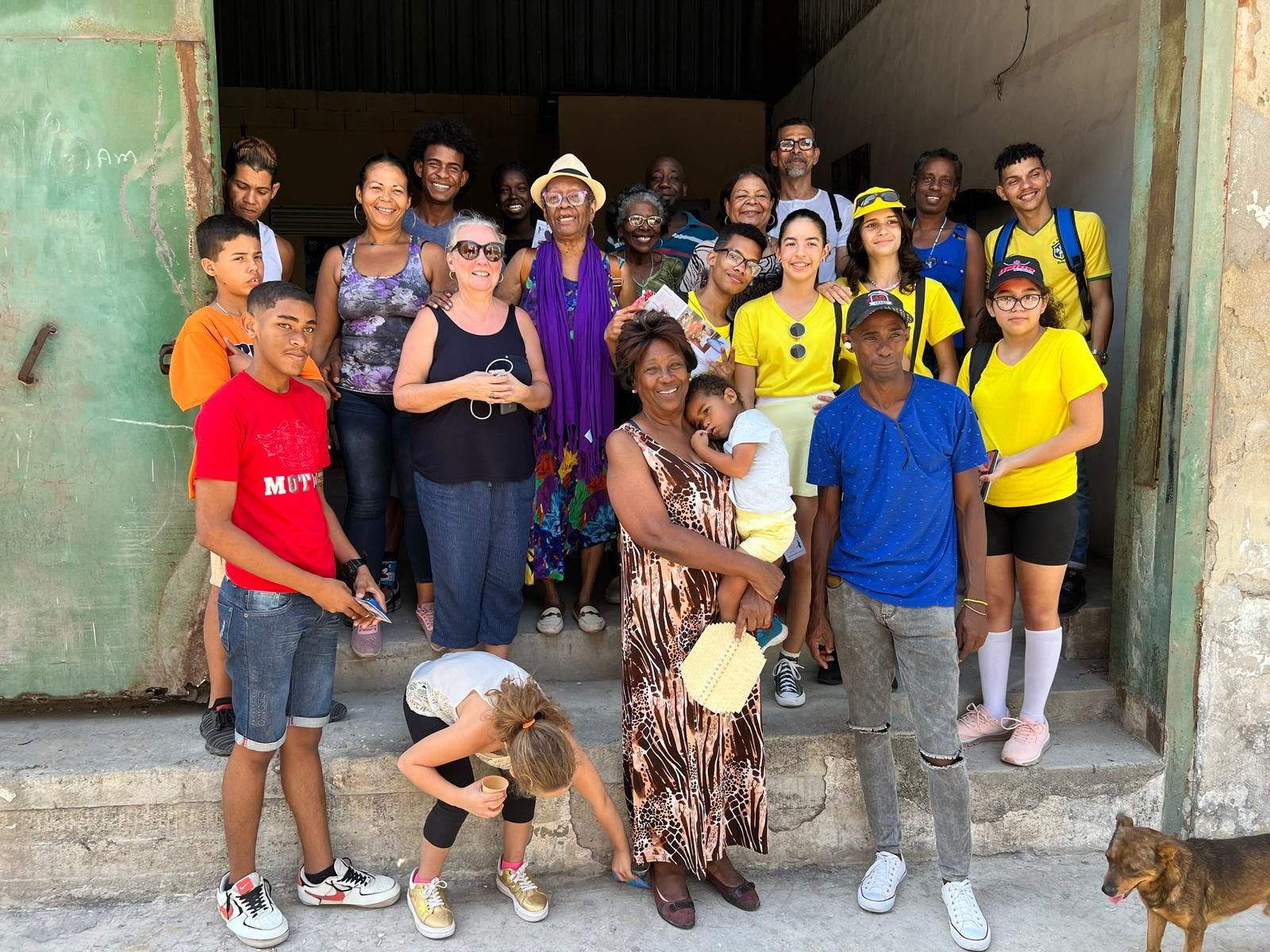
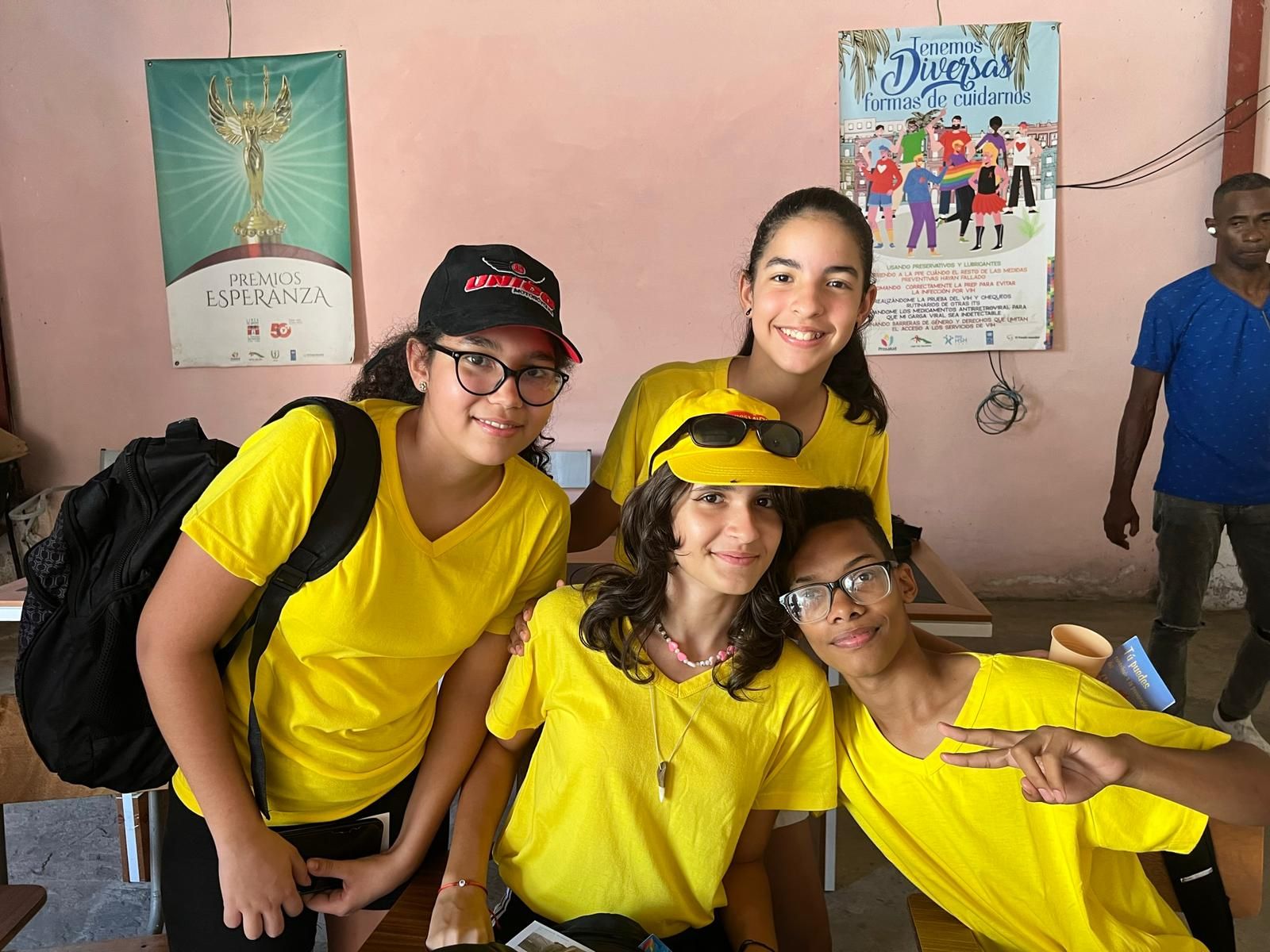
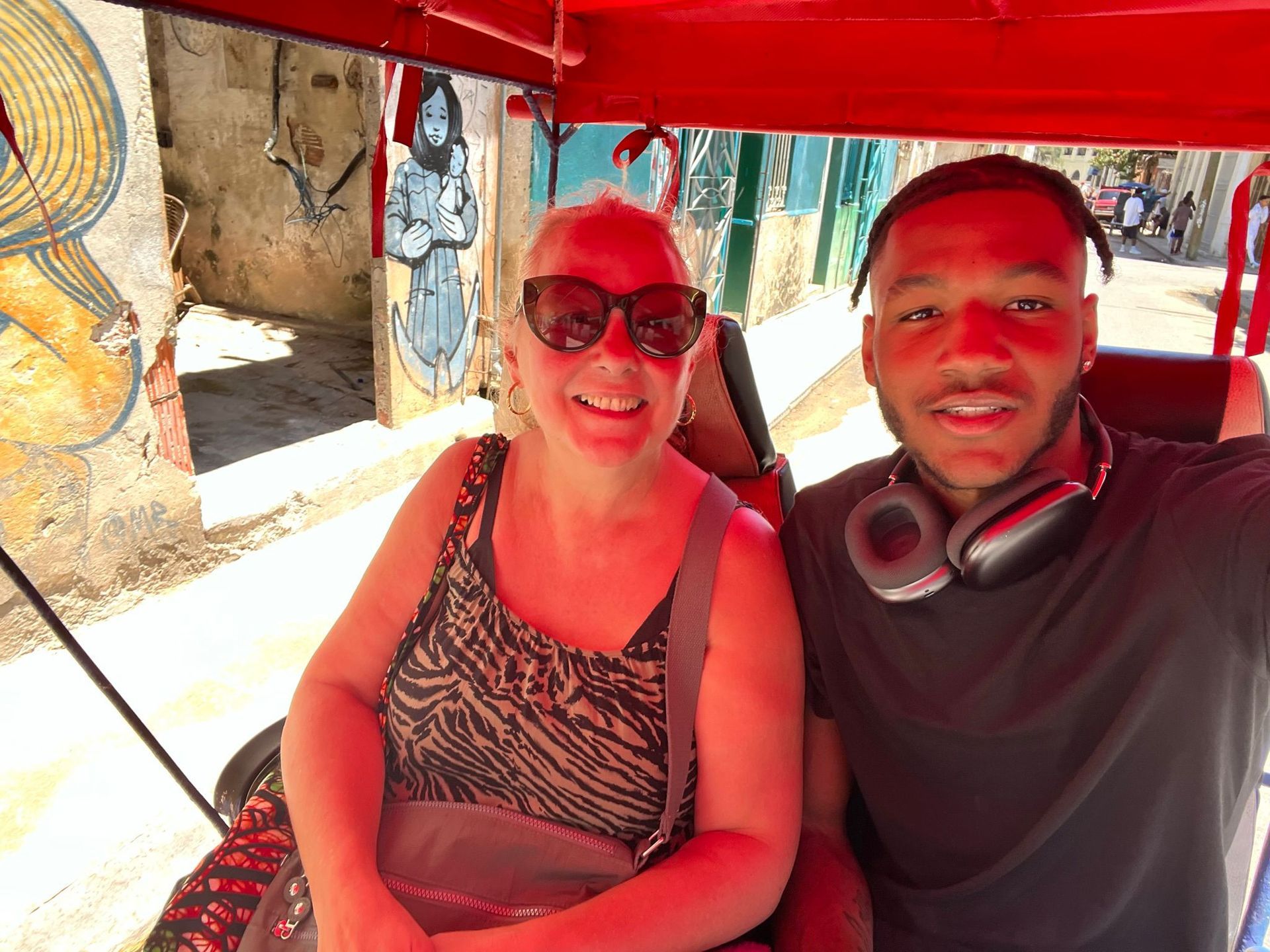
On this trip, I was also excited to have my grandson accompany me for work experience. You will hear from Kaylem in his own blog soon. One of great things about working for the Foundation is the level of flexibility and that we really care about each other like family.
The purpose of this trip was to learn from the projects that have taken place over the past couple of years and plan future ones and there was a lot of ground to cover in short space of time. On arriving in Havana, we met with educators who are delivering the projects locally and found out how they are meeting some of the challenges. Despite the blockade and the difficulties in sourcing educational resources there is a vibrancy in schools that is lacking in some schools where the resources are plentiful. The teachers are committed and loving (maybe loving is not the right word but that is what it felt like to me) towards their students not only about their learning but their safety and well-being also.
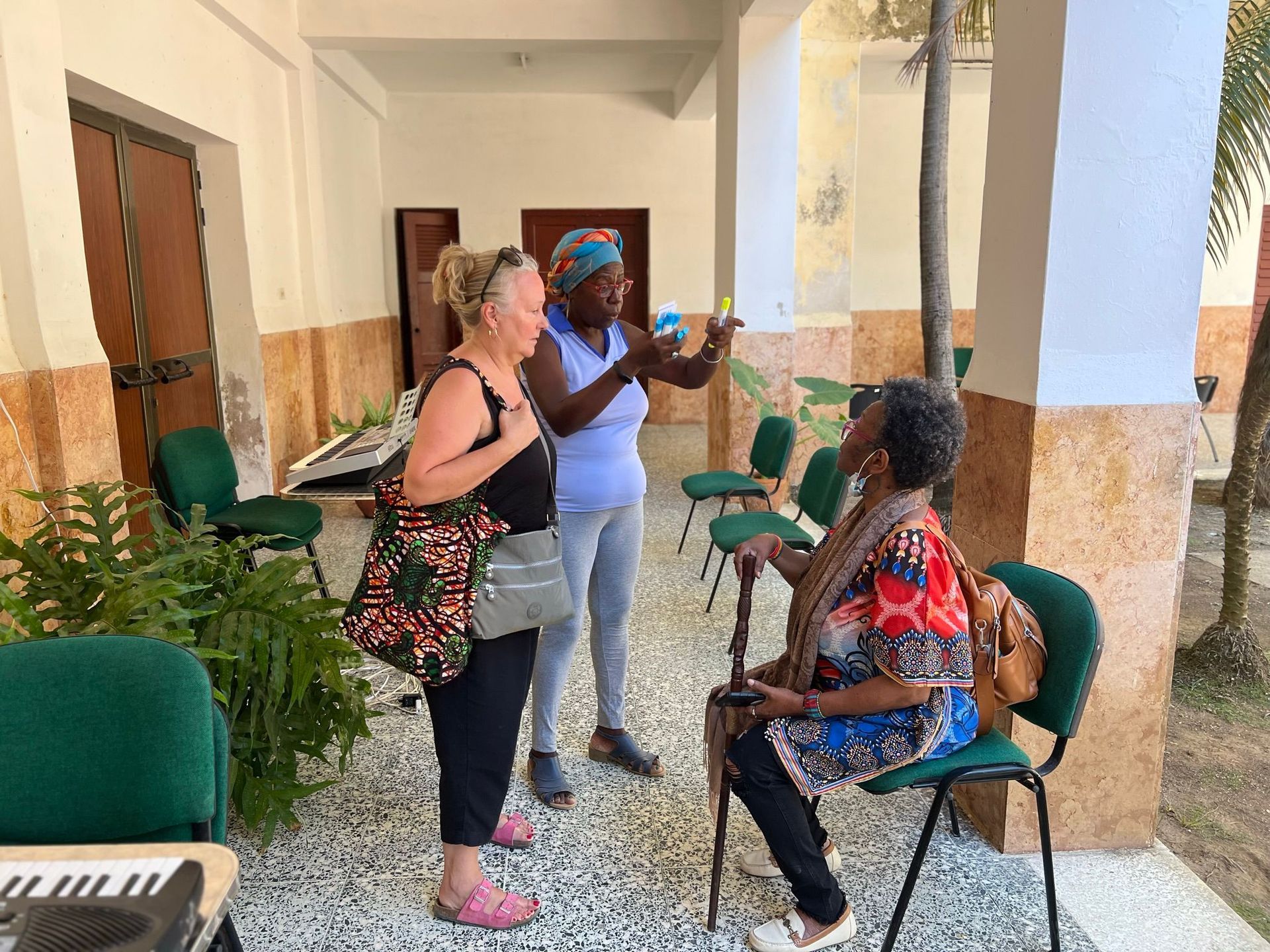
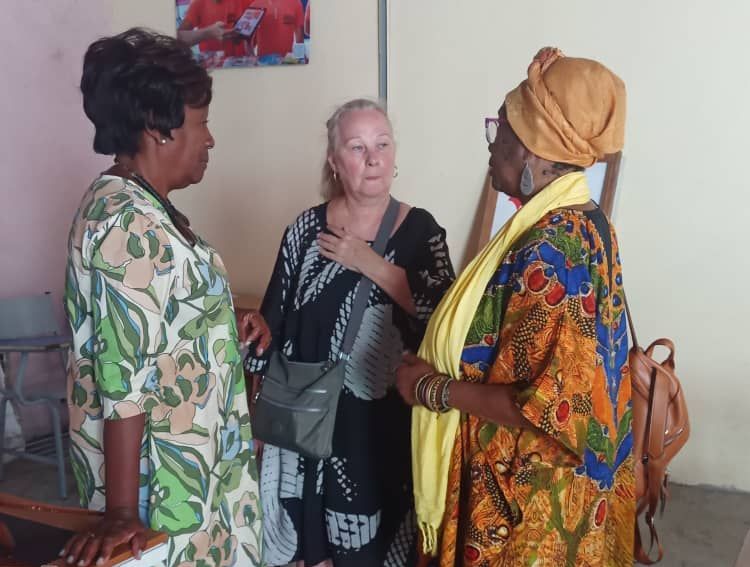
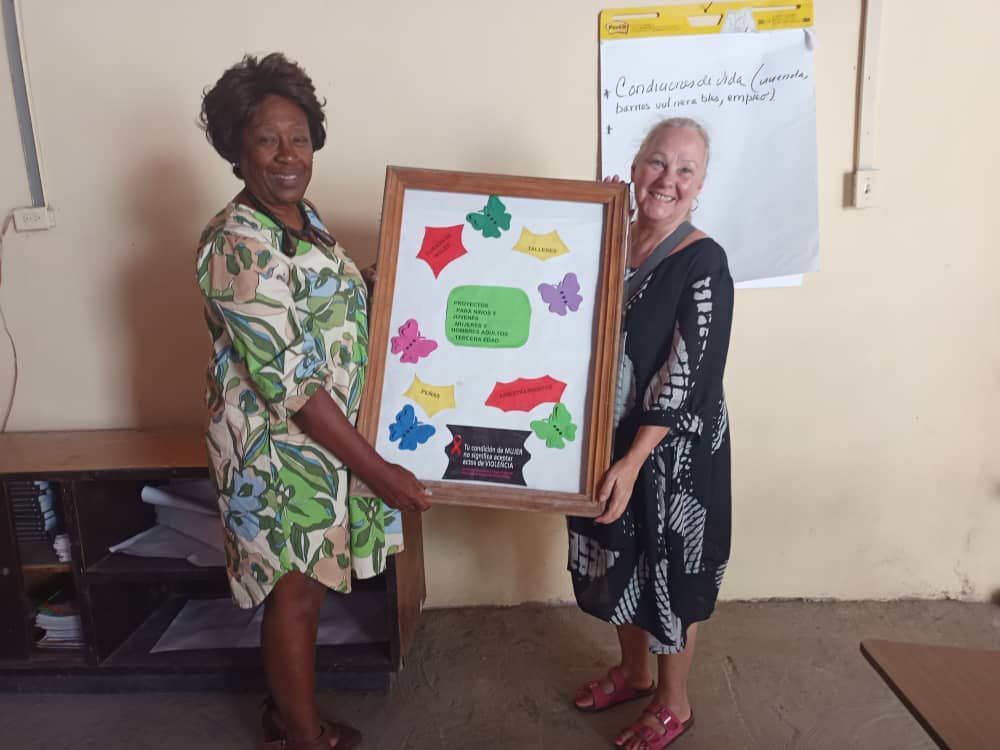
One of the primary schools we visited was hosting a session on well-being whilst we were there and asked us to join in. It was fascinating to be part of this, where children as young as 4 were being encouraged to speak about feelings and look out for each other.
After a few days in Havana, we visited Santa Clara and stayed at the Cuban Institute of Friendship with the Peoples (ICAP) for 2 nights.
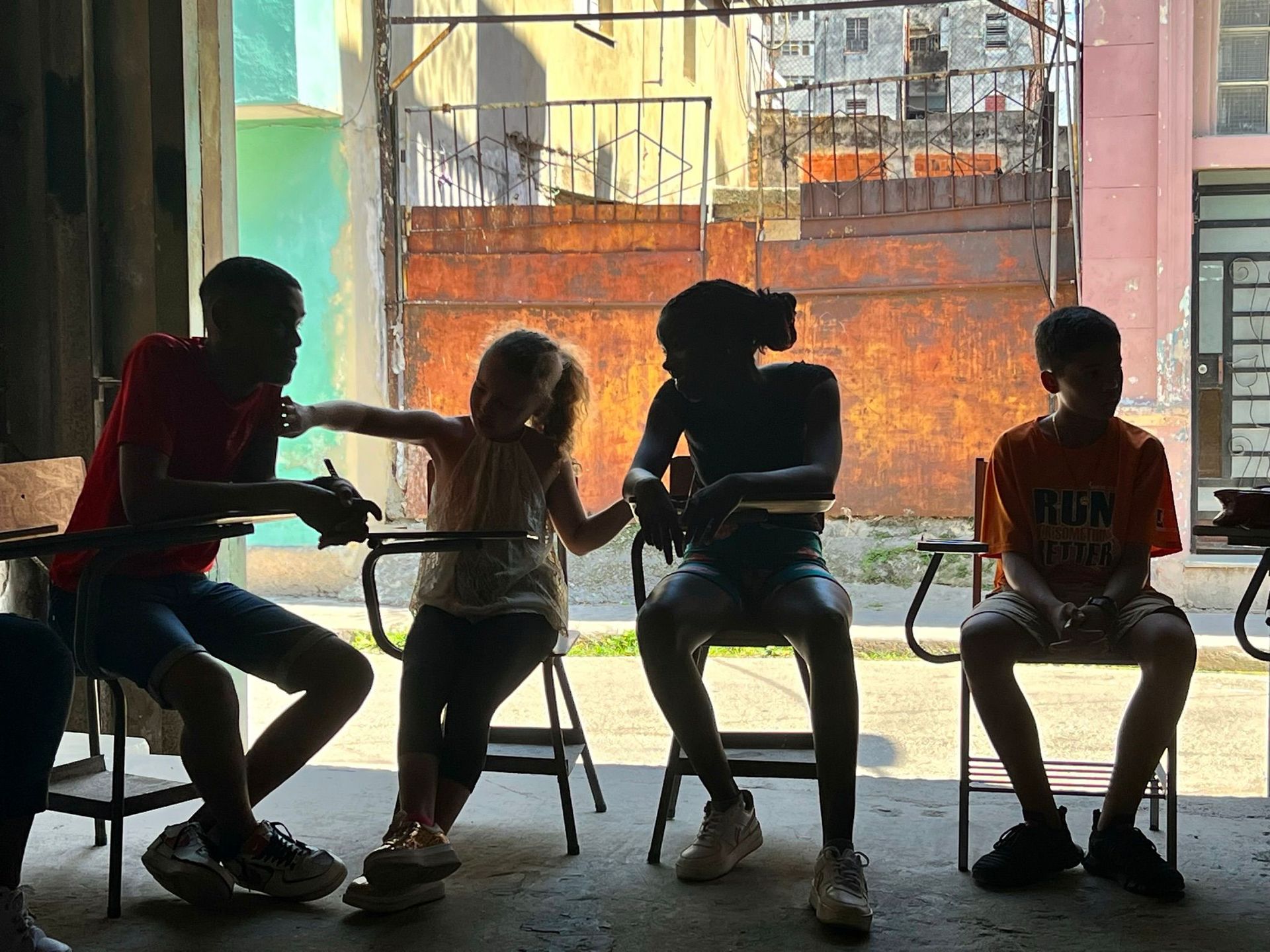
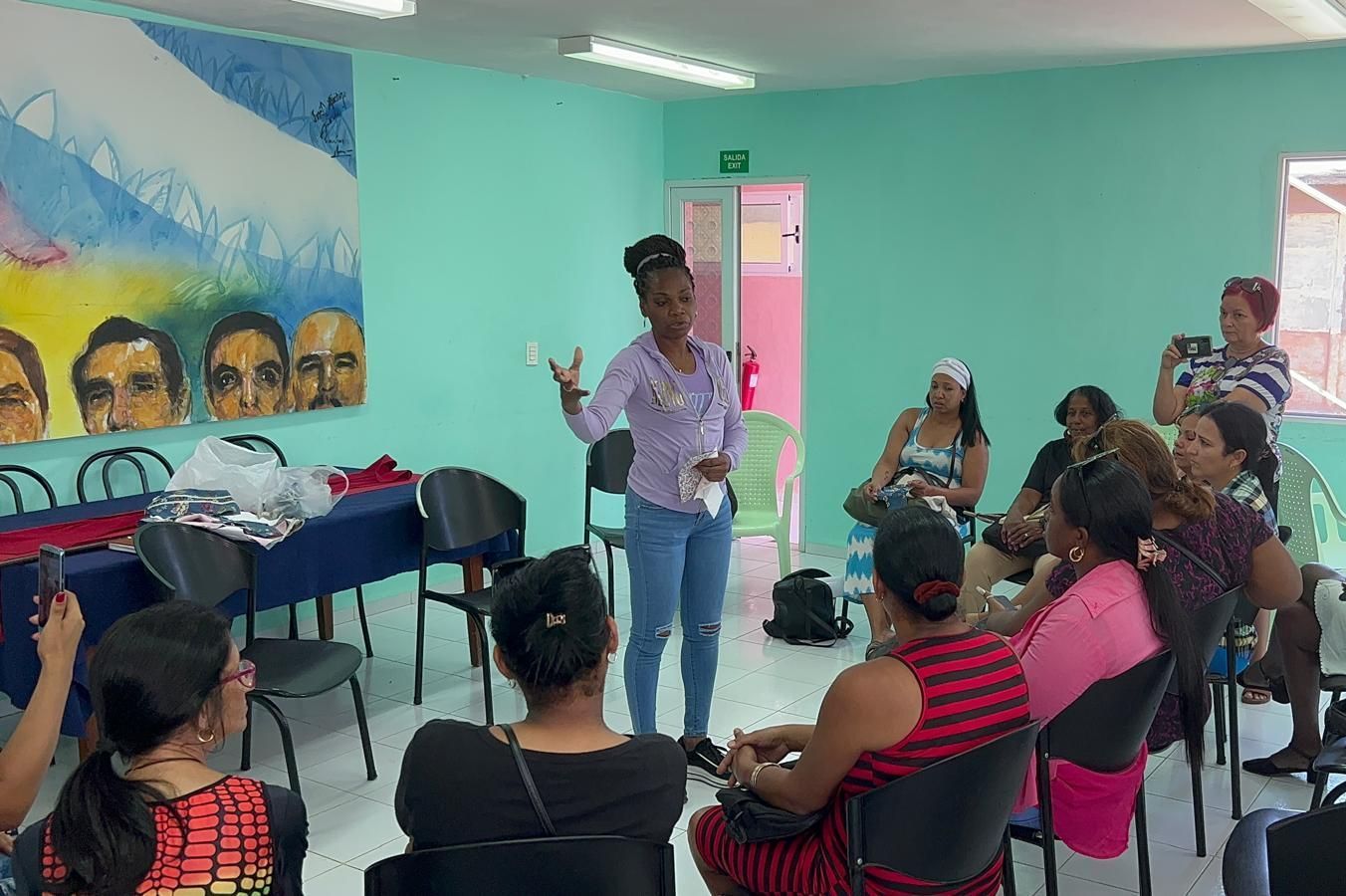
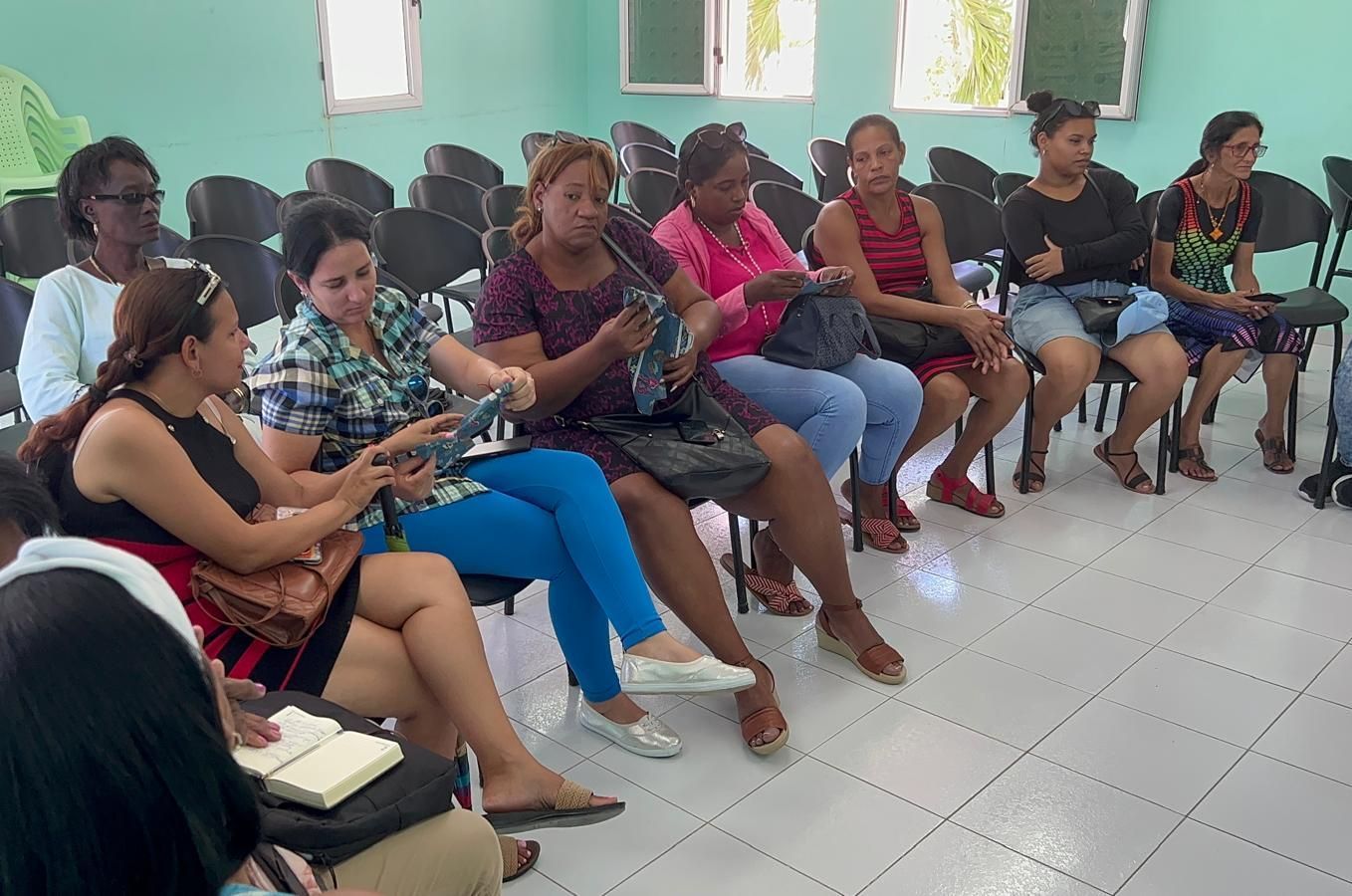
ICAP fosters solidarity with countries worldwide with a focus on education and health. They hosted a day for us to meet with the Federation of Cuban Women (FMC) so we could host a Positive Periods training session. The Positive Periods session was led by Naima Alena Guillard and Norma Rita Guillard Limonata; which covered the making of reusable and sustainable periods pads, menstrual and sexual health and creating safe spaces for women and girls.
It was really inspiring to hear how the FMC are leading on women’s rights across Cuba and of their many achievements in implementing equality for women across all sectors.
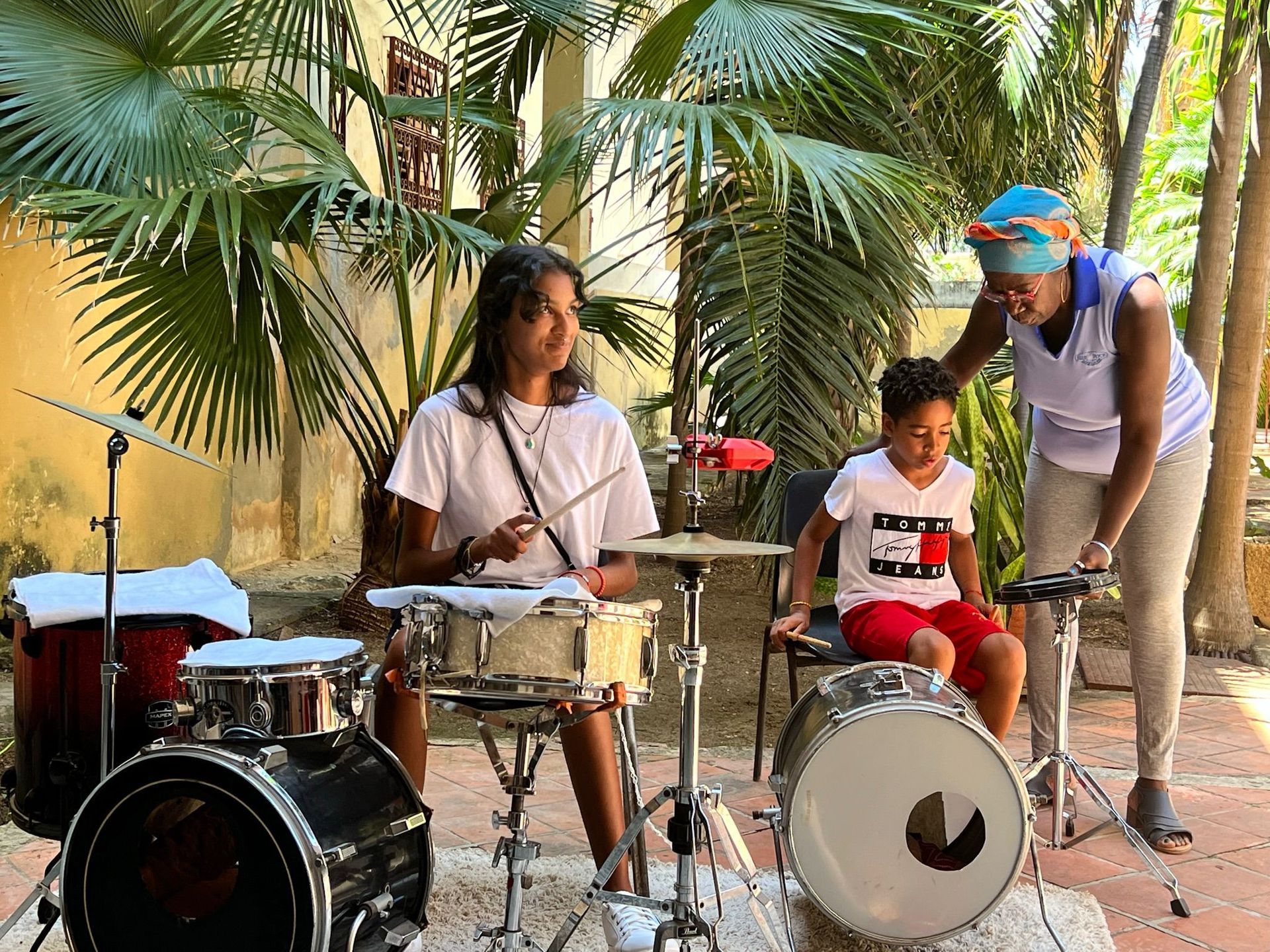
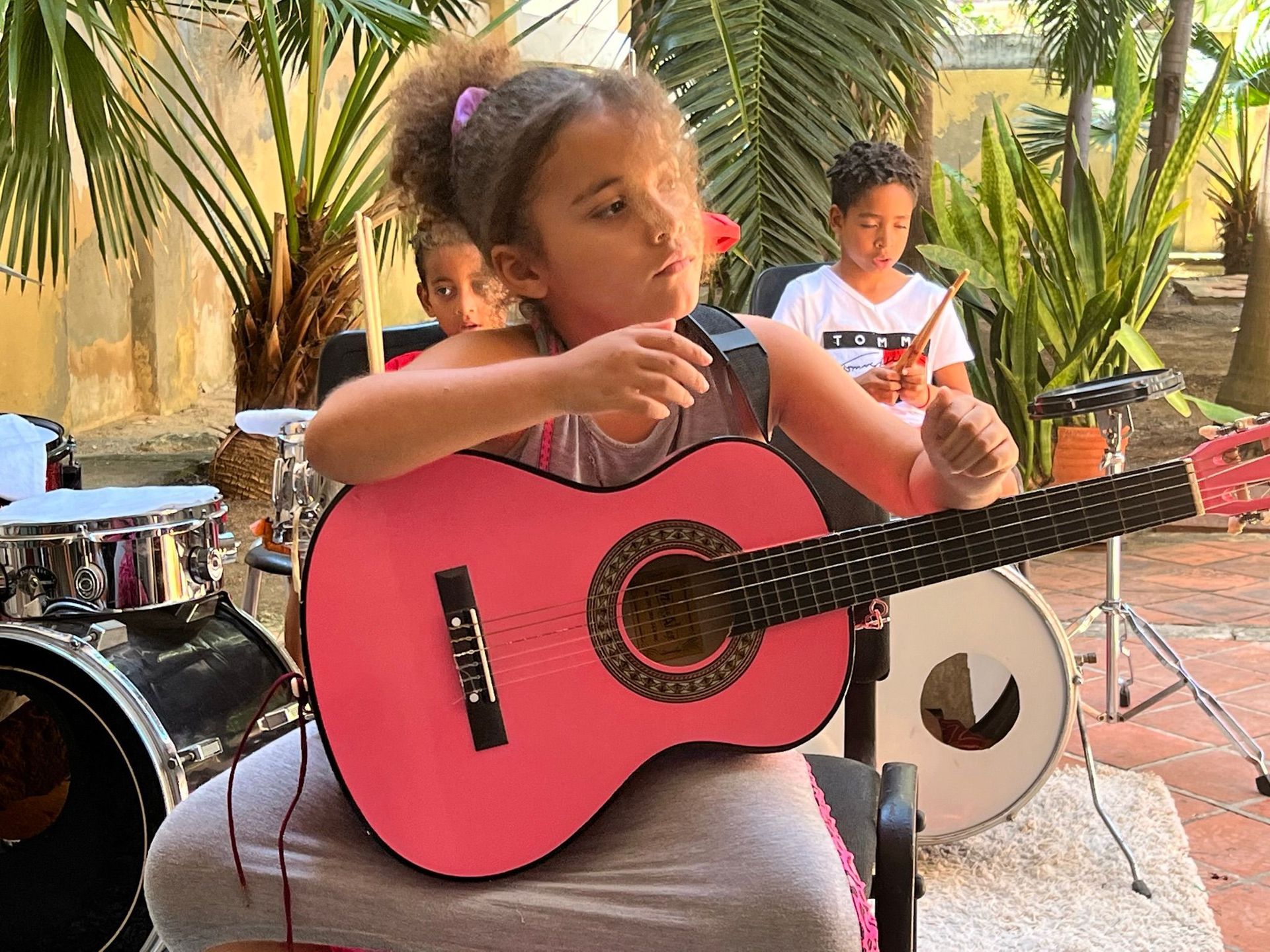
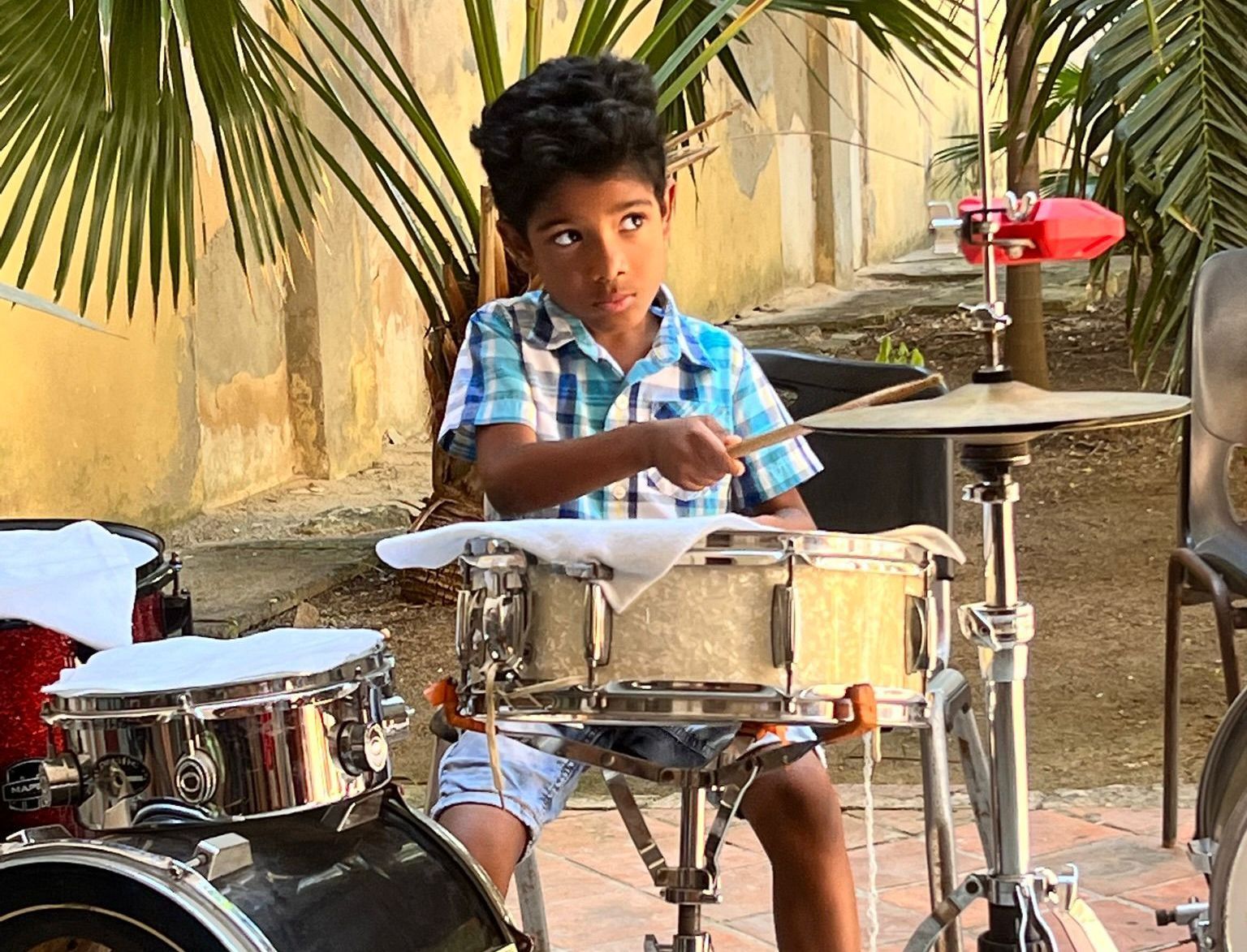
On our return to Havana, we visited Sabre music school, where students of all ages have the opportunity to play all the musical instruments available and learning to sing. It was a truly inspirational visit listening to students rotate and play different instruments and especially as I cannot even play one instrument in tune and I definitely cannot sing. I loved it, we were all blown away by the talent of students from 4 years to 18 years of age.
I had fruitful planning meetings with Delia M Vera Medina the Cuban ASPnet Coordinator and Dulce Maria Buergo Rodriguez President of UNESCO Cuba to discuss the Arts and Culture for Peace – Seeds for Hope and how we are looking forward to collaborating in 2025.
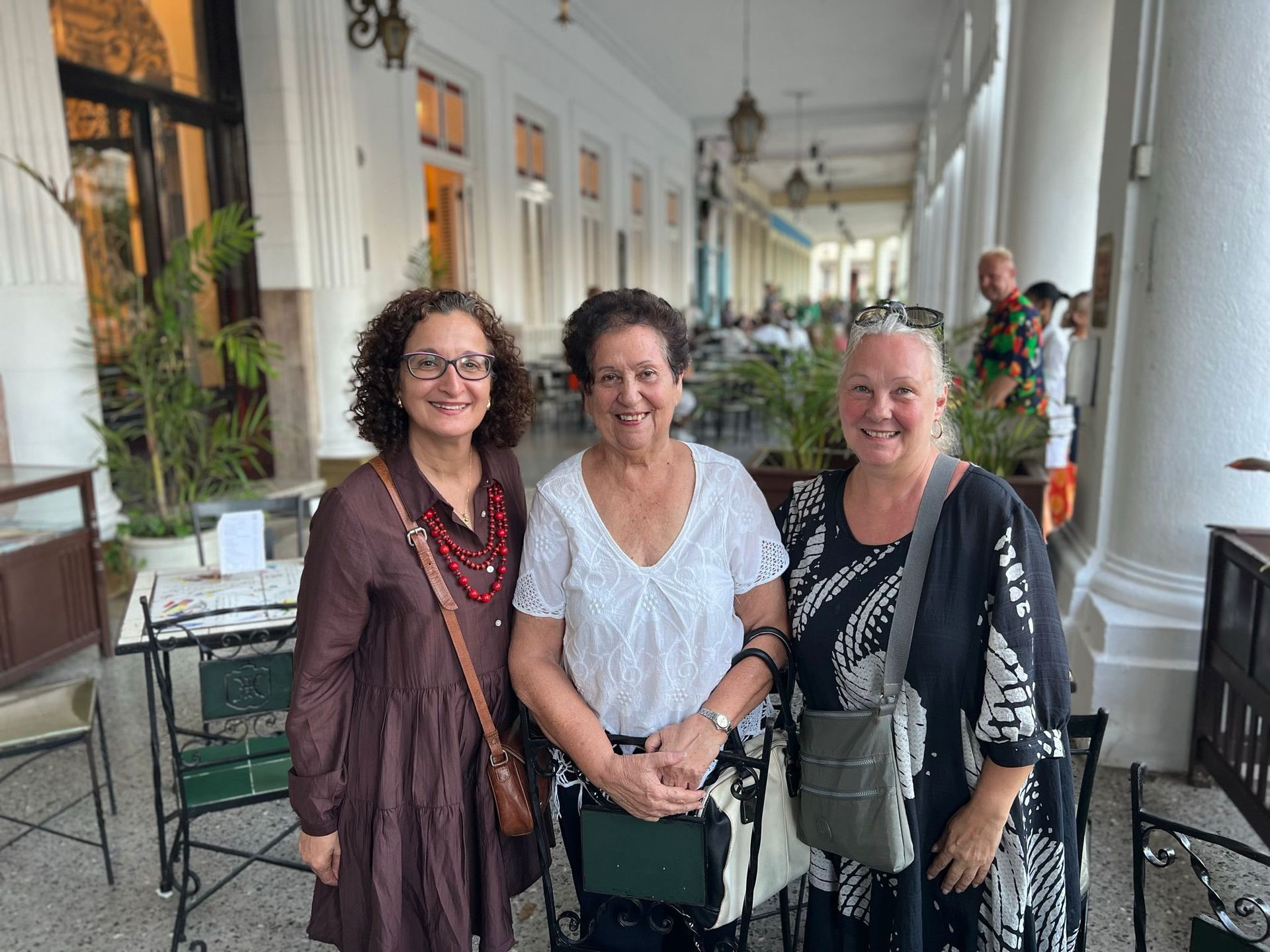
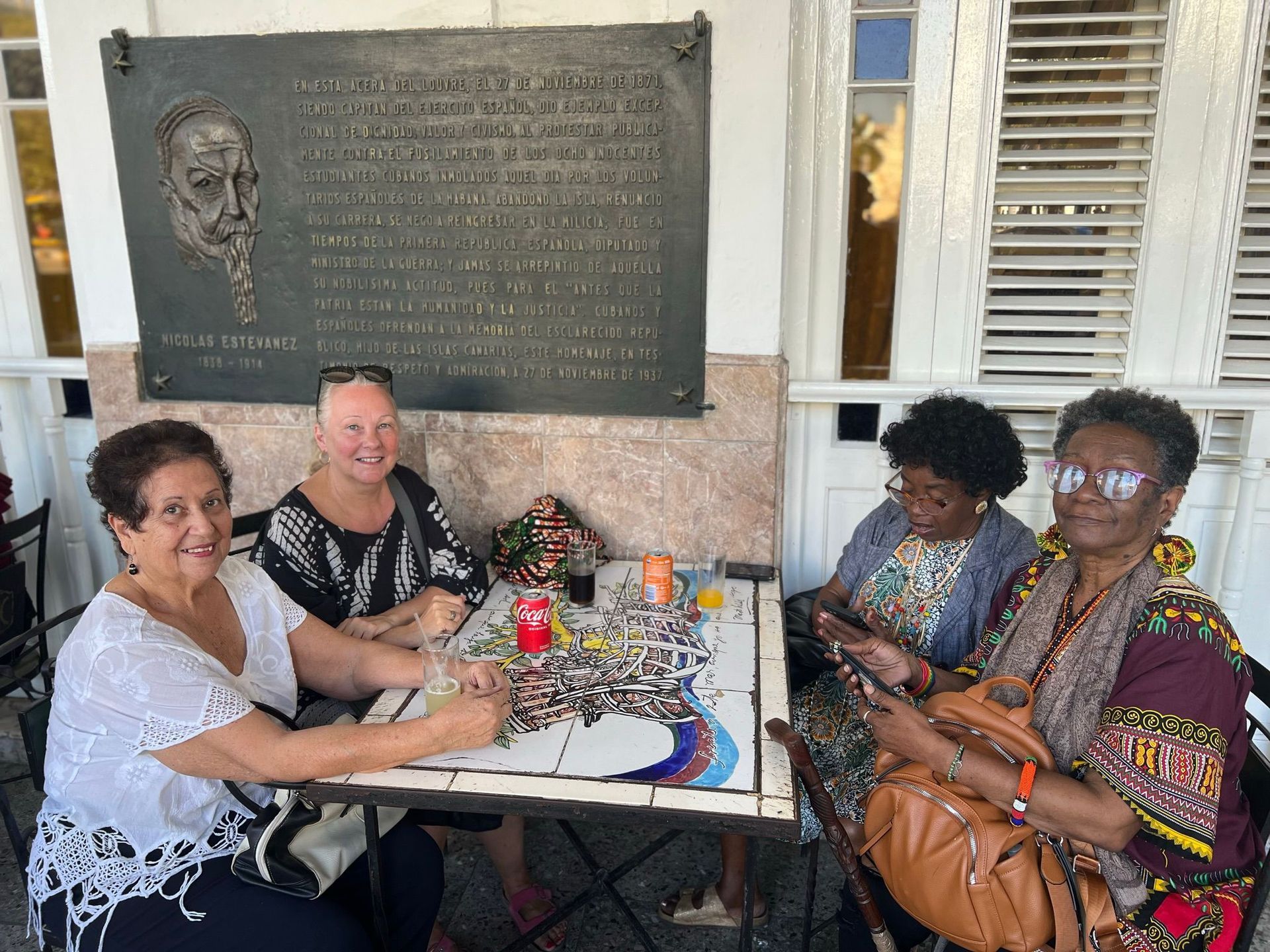
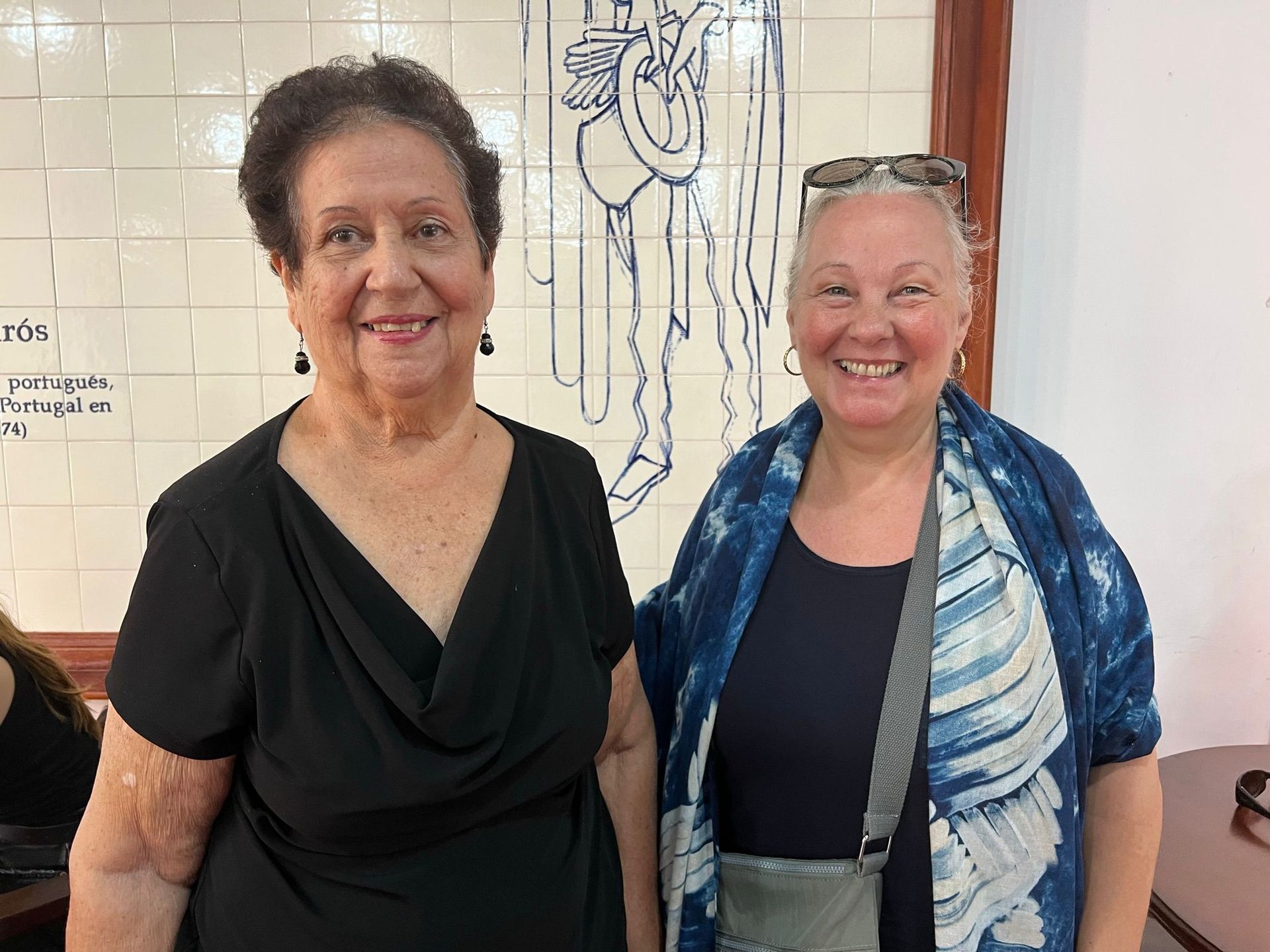
The highlight of the trip was most definitely meeting colleagues and sharing learning together. We spent time thinking about the best way to continue the projects in a sustainable way and often in Cuba you have to think outside of the box to meet some of the obstacles.
I had the greatest pleasure of meeting colleagues who I have worked with in Haiti and connecting them with each other to plan future projects together. It had been so long since I had connected with Norma, Naima, Doris and Gertrudis and it was so good to spend time together. I found out that all of my colleagues in Cuba are of Haitian heritage.
We had a good time planning our projects to support Education for All.




